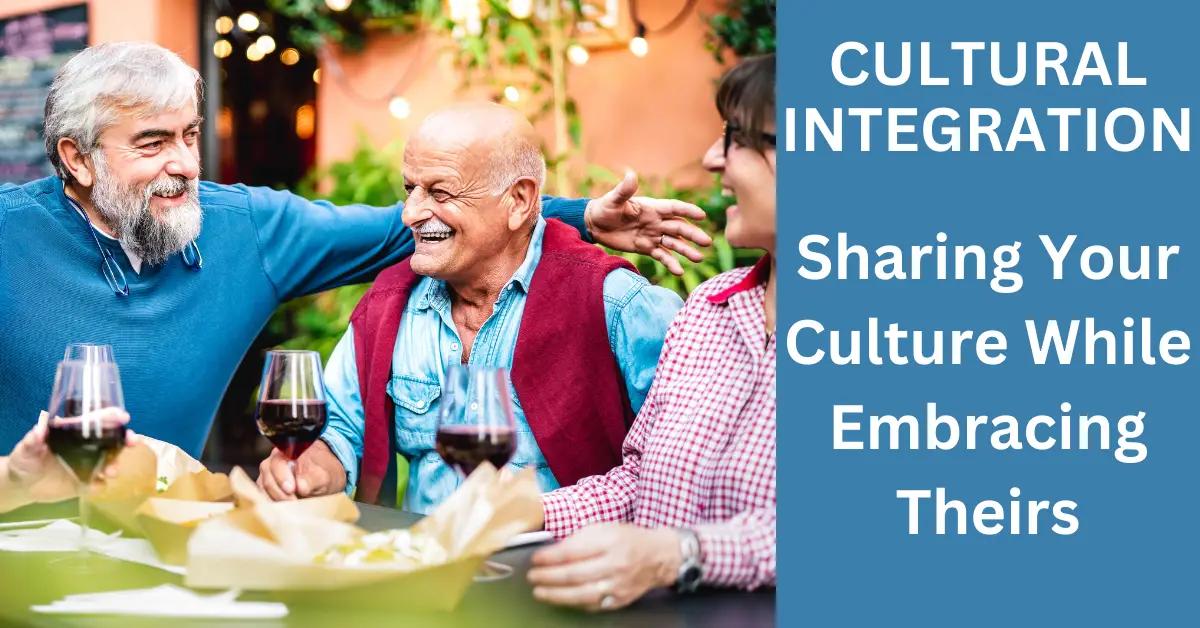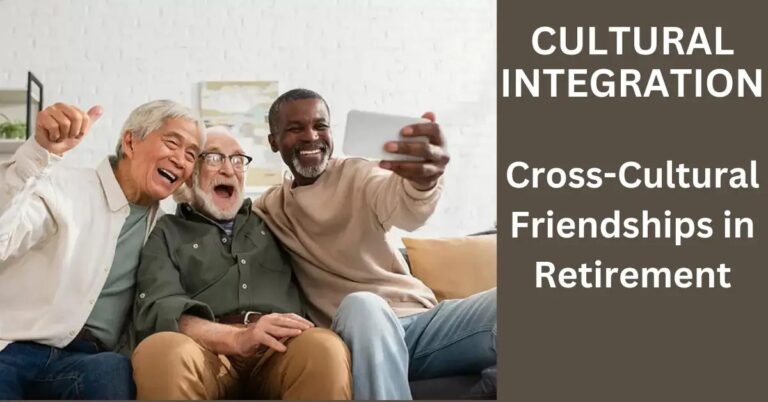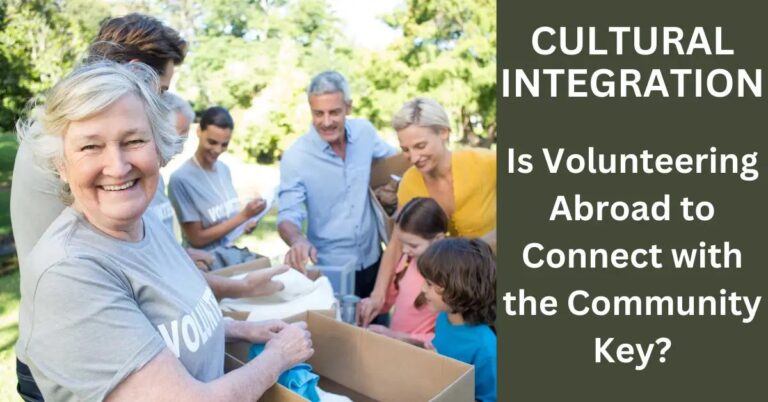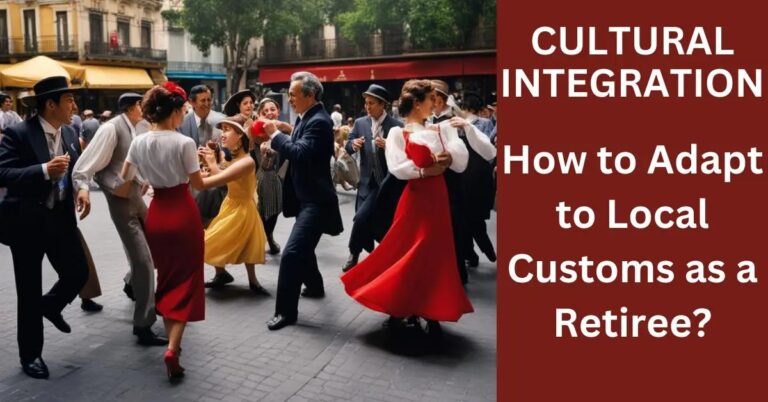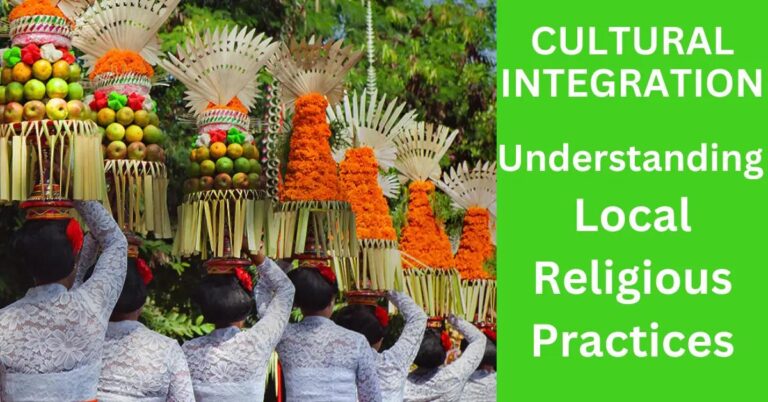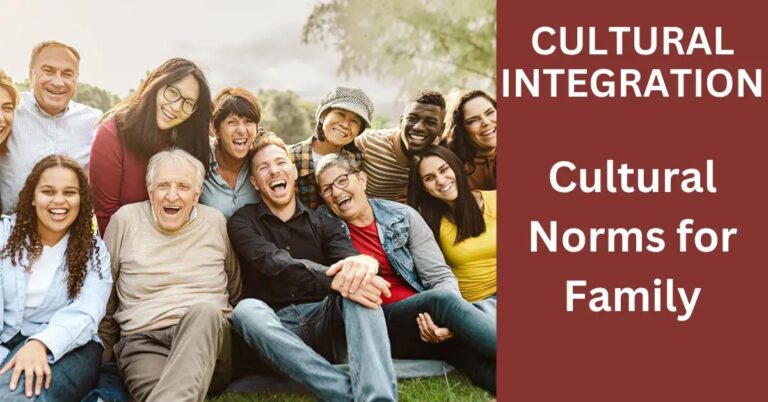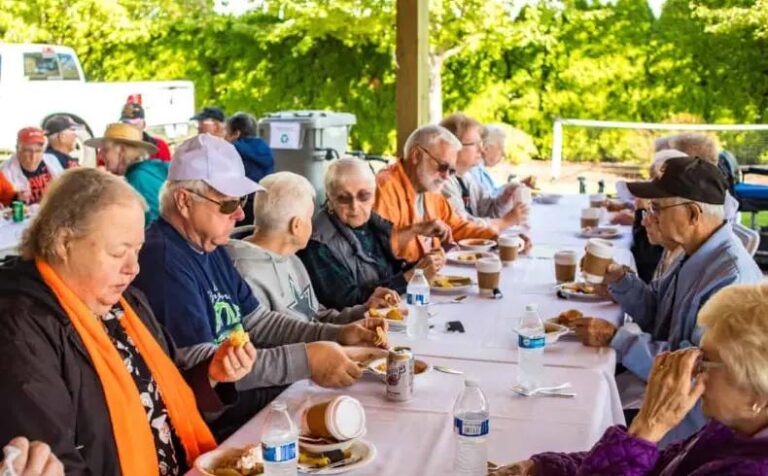TL;DR:
- Cultural sharing involves reciprocal learning and mutual respect.
- It strengthens friendships and enriches lives.
- Strategies include engaging in community life, cooking, and joining local events.
- Embracing cultural differences fosters personal growth through new foods, music, and ideas.
- Showcasing culture via food, art, and music sparks interest and storytelling.
- Community projects and dialogues promote cultural understanding and appreciation.
- Participating in multicultural events and organizing local gatherings help share diverse traditions.
- Importantly, embracing your own culture roots your identity and helps in balancing within multicultural settings.
- Cultural representation through art and storytelling invites mutual learning and understanding.
- Such activities promote tolerance, harmony, and a richer shared cultural experience.
Living abroad offers so much more than just new sights. Sharing your culture and also embracing others is key to thriving as an expatriate. This experience lets you grow and form new bonds in your host country. In this guide, you'll find how to exchange cultures with mutual respect, explore cultural roots, and celebrate diversity in your community. Ready to dive in? Let's start this cultural journey together!
How can you effectively share your culture with others while embracing theirs?
Sharing my culture while embracing others' means more than just exchange. It is a two-way street where learning and sharing go hand in hand. This means I show my culture and learn about theirs. I listen as much as I speak.
Why is it important to share your culture with others? It builds understanding. When we share our customs, we open doors to new friendships. It enriches our lives and others' too. Mutual respect in cultural exchange makes this possible.
I find strategies for mutual learning make cultural exchange successful. I learn about each other's daily practices and values by engaging in community life. This can include simple things like cooking together or joining local events. I emerse myself in another culture without losing my own identity.
Embracing cultural differences helps me grow. I learn from new ideas, foods, and music. Trying new foods and enjoying different melodies is part of this. These activities make me appreciate the depth of different cultures.
Showcasing my culture is also key. Food and art are strong avenues. Cooking a meal from my own culture can spark interest. Sharing music from my homeland can show how we celebrate life. Art, too, speaks where language cannot. It communicates feelings and stories.
To listen and learn about another culture's customs, I need patience. Learning involves respect for new ways of living. I watch, ask questions, and get involved.
In embracing the culture of a host country, I prepare for a meaningful journey. It’s not only about knowing facts but also living experiences. As I integrate into a new society with my own cultural identity, I find harmony in diversity. This cultural exchange lets me grow richer in experience and wiser in understanding.
What are Some Practical Examples of Sharing Your Culture While Embracing Another's?
Participating in Multicultural Events and Celebrations
Join events in your community to share cultures and learn new ones. Multicultural festivals are lively and open-minded. When participating, you show pride in your roots while gaining a deeper understanding of others. For example, during an event, you might share music or crafts from your culture. In return, try foods and dances from different backgrounds. This fun exchange builds respect and connections.
Collaborative Community Projects and Cultural Storytelling
Work on projects that highlight culture. This might include crafting a mural that shows many backgrounds or organizing a reading event with stories from various traditions. Community projects are hands-on methods of learning and sharing. When each group contributes their stories or art, you learn to appreciate diverse views and history. Such activities strengthen community ties.
Organizing Cultural Appreciation Events Within Neighborhoods
Plan local events to deep dive into diverse traditions. It does not need to be grand—a simple food fair where everyone brings a favorite dish works wonders. By organizing these events, you encourage sharing and unity. More importantly, it helps people to appreciate customs and foods they are not familiar with. It can foster greater multicultural appreciation by introducing different perspectives.
Engaging in Cross-Cultural Dialogue for Mutual Understanding
What does embracing culture mean? It means being open to new ideas while valuing your own. Cross-cultural dialogue involves honest talks about customs and traditions. When you engage in these conversations, listen actively. Ask questions and show interest. This form of dialogue breaks down walls of misunderstanding and builds mutual respect.
Sharing and Experiencing Holiday Traditions from Different Cultures
Invite neighbors to share in your holiday rituals. Ask them to join, whether it's making decorations or enjoying traditional meals. In return, attend their celebrations and learn the meaning behind them. This mix of sharing builds a strong sense of community and enriches personal experiences through diversity. By doing so, you celebrate diversity in communities and embrace a world of traditions and customs.
Sharing Your Culture While Embracing Theirs: How-To?
Why is embracing your own culture important? It roots our identity and values. Understanding where we come from helps us navigate the world. In a multicultural setting, this grounding becomes vital for balance and harmony.
To embrace one’s culture, begin with exploring and understanding your cultural roots. Connect with family, and learn the stories of your ancestors. These stories are a bridge to your past and an anchor in new places. This understanding fosters intercultural understanding and personal pride.
Balancing your cultural identity while integrating into a new community can be tricky. Don't box your heritage away; wear it as a badge of honor. Share your traditions with others. Attend local community events and join cultural education programs, which promote heritage awareness. These programs not only teach others but also deepen your understanding of your own culture.
Embracing one's heritage means knowing, celebrating, and sharing it. It enhances personal and global awareness. When others see you taking pride in your culture, they will be inspired too. This can lead to fostering intercultural understanding and creating a ripple effect in accepting differences.
What role does cultural representation play? It encourages tolerance and understanding. By representing your culture, you invite others to learn and share. This representation can come in many forms—art, music, food, and storytelling. Each act of sharing is an opportunity to build bridges.
In a multicultural setting, embracing your own culture elevates your experience. You become a part of a tapestry woven from threads of various cultures. Celebrate each thread for its unique value. This celebration helps in celebrating cultural heritage while learning about others.
By fostering this mutual respect and understanding, we promote harmony. Culture, at its essence, connects us, guides us, and enhances our shared journey.
Conclusion
Sharing your culture while embracing others opens doors to new friendships and wisdom. By engaging in cross-cultural events and staying curious, we build connections and mutual respect. Remember, showcasing your culture through food and art can teach others while broadening your perspective. As you explore your roots and traditions, understand that each step fosters a global bond. Dive into cultural storytelling and dialogues, and you'll find your place in the vibrant tapestry of diversity. Together, let’s celebrate and learn from every unique heritage, nurturing a world of shared understanding.

